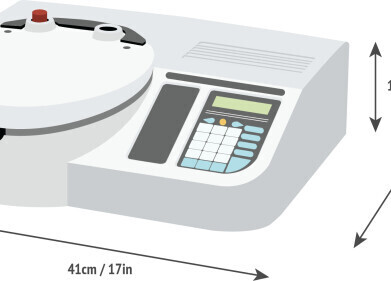Chromatography
What is Umbilical Cord Blood Banking?
Apr 11 2018
From giving up coffee to picking names, new parents have a lot to think about when expecting a new member of the family. Now, scientists have thrown a new decision into the works – umbilical cord banking. Loaded with flexible cells, some experts assert that the umbilical cords of newborn babies could emerge as a powerful tool in treating diseases like Alzheimer’s, as well as conditions like cerebral palsy and autism.
An ongoing lifeline
During pregnancy the umbilical cord serves as a lifeline to the foetus. It tethers the baby to the placenta and provides it with oxygen and nutrients sourced from the mother's blood. The cord measures in at nearly two-feet-long and is filled with cells and molecules. While umbilical cords were once snipped and discarded, they've now won attention for their potentially therapeutic properties. As a result, some scientists are advising parents to bank the blood found in umbilical cords. After being harvested it's frozen, stored and could eventually be used to treat a host of medical conditions.
Harvesting flexible hematopoietic stem cells
The flexible hematopoietic stem cells contained within the umbilical cord are of particular interest. Advocates maintain that blood transfusions could help to recharge the body and ward off disease-related defects. As well as being used to benefit the owner, the "flexible" nature of hematopoietic stem cells means that they can also be donated to other recipients without the need for a perfect match. This makes them especially beneficial for ethnic minorities and people with rare blood types, who can often encounter difficulty when searching for a compatible donor.
Using umbilical blood to fight Alzheimer’s
Other scientists believe that umbilical cord blood contains cells that could be laden with therapeutic effects. For example, some specialised immune cells could have the power to boost brain function. This could see the umbilical cord emerge as an exciting new weapon in the fight against Alzheimer’s disease and other neurodegenerative conditions. Research is also underway for conditions like cerebral palsy, with studies suggesting that after receiving injections of their own umbilical cord blood, children with cerebral palsy demonstrated improved motor skills. Clinical trials also indicate that umbilical cord blood transplants could improve the symptoms of autism spectrum disorder, as well as conditions like diabetes and lupus.
Chromatography often plays a key role in medical science, with previous studies using the laboratory technique to detect neonatal drug exposure and assess androgen levels. For a closer look at the latest developments don't miss 'Biphenylpropyl Modified Silica: An Interesting Choice for RP Chromatography'
Digital Edition
Lab Asia Dec 2025
December 2025
Chromatography Articles- Cutting-edge sample preparation tools help laboratories to stay ahead of the curveMass Spectrometry & Spectroscopy Articles- Unlocking the complexity of metabolomics: Pushi...
View all digital editions
Events
Jan 21 2026 Tokyo, Japan
Jan 28 2026 Tokyo, Japan
Jan 29 2026 New Delhi, India
Feb 07 2026 Boston, MA, USA
Asia Pharma Expo/Asia Lab Expo
Feb 12 2026 Dhaka, Bangladesh



















